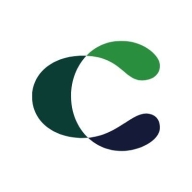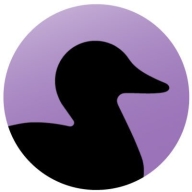

Contrast Security Assess and Coverity Static are both key players in the application security tools market. Coverity Static generally has the advantage due to its robust features and comprehensive testing capabilities, which make it favored by those prioritizing extensive security assessments.
Features: Contrast Security Assess shines with its real-time analysis, seamless integration in development workflows for continuous monitoring, and vulnerability detection capabilities. Coverity Static stands out for its deep code analysis, comprehensive security checks, and exceptional integration with existing development tools, giving it an advantage in rigorous security environments.
Room for Improvement: Contrast Security Assess could enhance its functionality by simplifying its interface and expanding its Protect features for wider applicability. It could also benefit from reducing setup complexity further and enhancing comprehensive training resources. Coverity Static may improve by addressing its lengthy setup process, reducing its resource intensity during scans, and enhancing real-time analysis capabilities to remain competitive.
Ease of Deployment and Customer Service: Contrast Security Assess offers a user-friendly deployment process and proactive customer support, making installation and maintenance straightforward. Coverity Static, while potentially more complex to set up, compensates with thorough documentation and an attentive support system aiding in user experience.
Pricing and ROI: Contrast Security Assess is cost-effective initially, appealing to budget-conscious organizations for quick implementation. Conversely, Coverity Static justifies its higher cost by delivering significant ROI through robust vulnerability detection and enhanced long-term security, appealing to those who prioritize enduring security strength over upfront savings.
| Product | Market Share (%) |
|---|---|
| Coverity Static | 4.7% |
| Contrast Security Assess | 0.8% |
| Other | 94.5% |
| Company Size | Count |
|---|---|
| Small Business | 2 |
| Midsize Enterprise | 3 |
| Large Enterprise | 6 |
| Company Size | Count |
|---|---|
| Small Business | 8 |
| Midsize Enterprise | 6 |
| Large Enterprise | 31 |
Contrast Security is the world’s leading provider of security technology that enables software applications to protect themselves against cyberattacks, heralding the new era of self-protecting software. Contrast's patented deep security instrumentation is the breakthrough technology that enables highly accurate assessment and always-on protection of an entire application portfolio, without disruptive scanning or expensive security experts. Only Contrast has sensors that work actively inside applications to uncover vulnerabilities, prevent data breaches, and secure the entire enterprise from development, to operations, to production.
Coverity gives you the speed, ease of use, accuracy, industry standards compliance, and scalability that you need to develop high-quality, secure applications. Coverity identifies critical software quality defects and security vulnerabilities in code as it’s written, early in the development process, when it’s least costly and easiest to fix. With the Code Sight integrated development environment (IDE) plugin, developers get accurate analysis in seconds in their IDE as they code. Precise actionable remediation advice and context-specific eLearning help your developers understand how to fix their prioritized issues quickly, without having to become security experts.
Coverity seamlessly integrates automated security testing into your CI/CD pipelines and supports your existing development tools and workflows. Choose where and how to do your development: on-premises or in the cloud with the Polaris Software Integrity Platform (SaaS), a highly scalable, cloud-based application security platform. Coverity supports more than 20 languages and 200 frameworks and templates.
We monitor all Static Application Security Testing (SAST) reviews to prevent fraudulent reviews and keep review quality high. We do not post reviews by company employees or direct competitors. We validate each review for authenticity via cross-reference with LinkedIn, and personal follow-up with the reviewer when necessary.